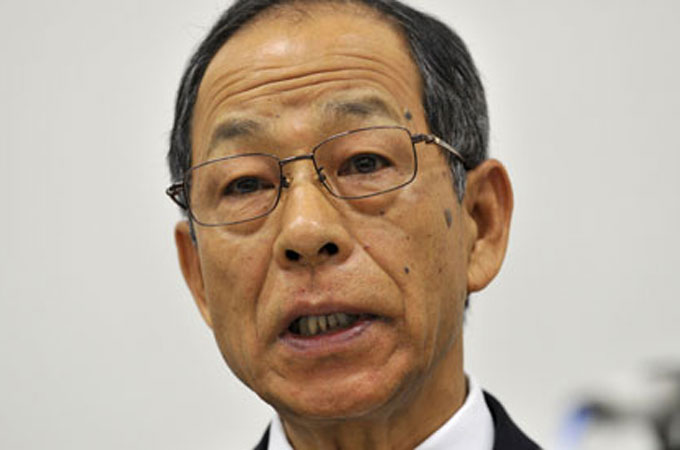Olympus charged over accounts scandal
Camera maker and six key figures charged with scheming to hide $1.7bn in financial losses from balance sheets.

 |
| Kikukawa was named as a key suspect in the plot to falsify the company’s balance sheet in 2006 and 2007 [AFP] |
Japanese prosecutors have launched criminal charges against Olympus and six key figures allegedly involved in a massive accounting scandal, the latest development in the investigation of one of the country’s biggest corporate financial cover-ups.
Three former executives of Olympus, the camera maker, and three financical advisers have been accused of taking part in a scheme to hide $1.7bn of losses from the company’s balance sheet.
Keep reading
list of 4 itemsWhy are nations racing to buy weapons?
Parallel economy: How Russia is defying the West’s boycott
US House approves aid package worth billions for Ukraine, Israel
The charges came as the 20-day detention period for Tsuyoshi Kikukawa, the former Olympus president named as a key suspect in the scheme, came to an end.
Tokyo District prosecutors said Kikukawa, two other former Olympus executives, Hideo Yamada and Hisashi Mori, and three financial advisers conspired to falsify the company’s balance sheet in the fiscal years of 2006 and 2007.
The same charge was also laid against Olympus as a corporate entity. Prosecutors also arrested three former Olympus officers and financial adviser Akio Nakagawa for lying in financial documents relating to fiscal 2008, fiscal 2009 and fiscal 2010.
They will have 20 days to decide whether to charge them on these separate counts.
Olympus also faced the same fresh suspicions, the prosecutors said. The move followed a request from the country’s Securities and Exchange Surveillance Commission, which on Tuesday urged prosecutors to sue the men and the company.
The Tokyo Stock Exchange (TSE) said criminal charges against the company would not in themselves mean Olympus would be expelled from the exchange.
“We will consider whether to delist Olympus or not if prosecutors disclose fresh facts, but an indictment on facts we already know is not a condition for delisting,” a TSE spokesman told AFP.
The scandal, which has seen Olympus lose much of its value on the Tokyo Stock Exchange, erupted in a blaze of international publicity when British chief executive and president Michael Woodford was sacked in October.
The 92-year-old firm eventually admitted a small group of top executives used overpriced deals to cover up bad investments dating back to the 1990s, making it one of the country’s biggest ever financial scandals.
Following his sacking, Woodford launched aggressive media offensives against his former bosses, questioning the firm’s past acquisition deals and the outsized consultant fees it had paid.